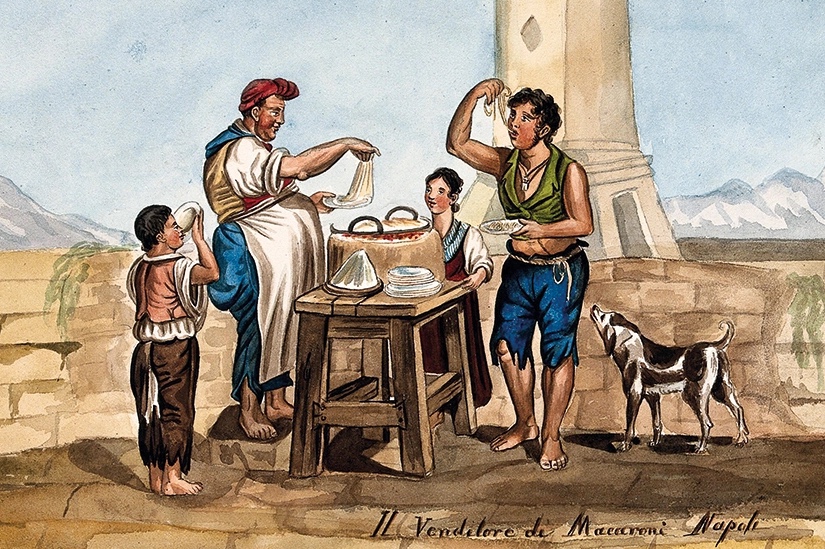A few years ago I was feeling peckish at Catania airport. I wandered over to the main café and spotted – beyond the stacks of panini stuffed with wilting prosciutto – a sign promising pasta. I assumed they’d be doling it out ready-made from a hulking pot, school-canteen style. But no: they were carefully blanching each portion of rigatoni, then finishing it in the sauce (a humble pomodoro). Who cares about foot-tapping customers on the verge of missing their flights? There were more noble priorities.
The celebrity chef Carlo Cracco caused an uproar when he included garlic in his amatriciana sauce
This national pedantry – more interesting than the British and their tea – has often been mined for comedy. On Instagram you can find reels of vigilante nonnas wincing as some bozo sprinkles parmesan over his spaghetti vongole. And there’s that episode of The Sopranos in which Paulie Walnuts visits the old country and asks for ‘macaroni and gravy’. For many Italians, though, it’s no laughing matter. In 2015, the celebrity chef Carlo Cracco dared to put a clove of garlic in his amatriciana sauce (basic ingredients: tomatoes, guanciale, chilli and pecorino) and was furiously denounced by the region’s municipal government.
So one of the intriguing things about the food historian Luca Cesari’s book, which mentions this incident, is the way it shows that these supposedly unimpeachable rules and ‘perfect’ recipes don’t in fact have a lot to back them up. A Brief History of Pasta touches on the hazy origins of the stuff itself, in classical Greece and the Near East, as well as in 12th-century Sicily, where it was first dried. But the focus is on how Italians have used it. Over ten chapters, each dealing with one of the big dishes (bolognese, ragù, lasagne and so on), Cesari condenses a library’s worth of cook books and treatises to make the case – perhaps a little too insistently – that pasta is a living thing, changing with the times, rather than ‘some mythical, ahistorical tradition’.







Comments
Join the debate for just £1 a month
Be part of the conversation with other Spectator readers by getting your first three months for £3.
UNLOCK ACCESS Just £1 a monthAlready a subscriber? Log in